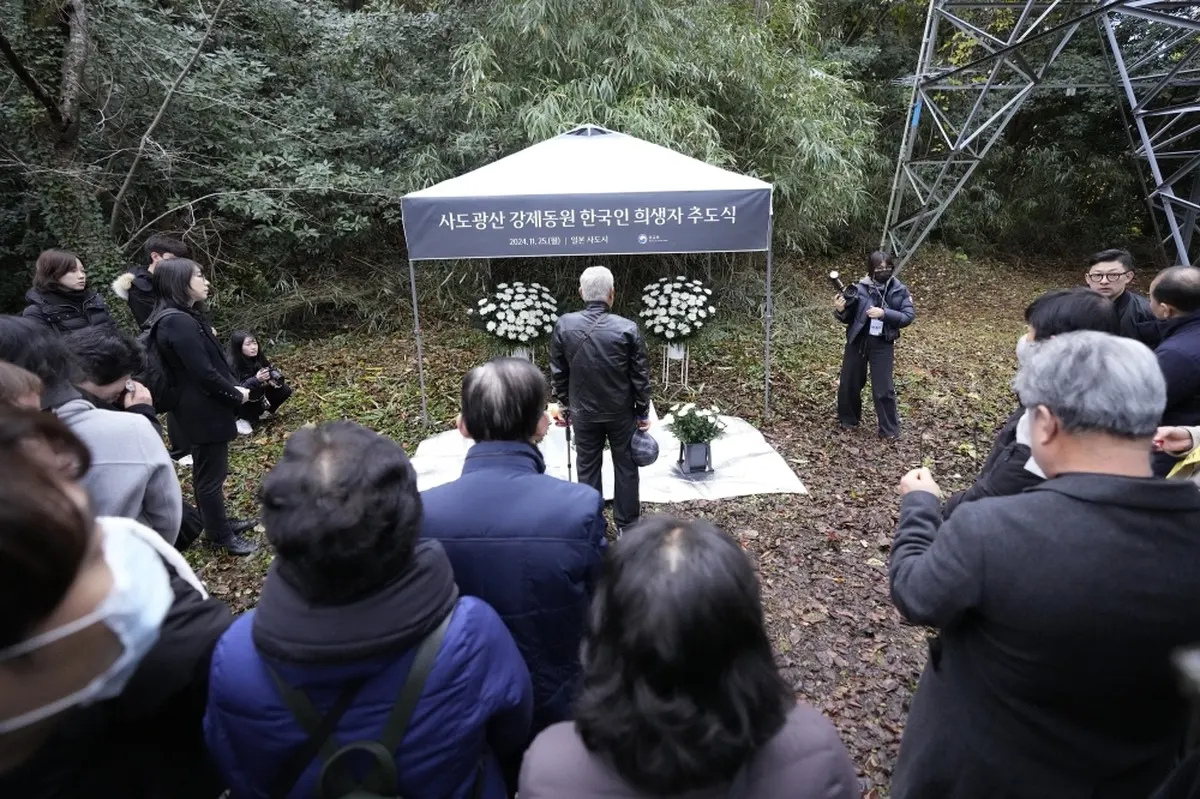25/11/2024
25/11/2024

SADO, Japan, Nov 25, (AP): South Korea paid tribute to wartime Korean forced laborers at Japan’s Sado Island Gold Mines in a memorial ceremony on Monday, a day after boycotting a similar event organized by Japan, as tensions over historical atrocities continue to strain relations between the two sides. Monday's ceremony at a former dormitory near the 16th century Sado mines, which were listed this summer as a UNESCO World Heritage site, was organized by South Korea’s Foreign Ministry and attended by nine family members of Korean wartime laborers, the country’s ambassador to Japan and other officials.
Japan on Sunday held a memorial service for all workers at the Sado mines, including Koreans. It thanked them for their contributions at the mines but did not acknowledge their forced labor or issue an apology. At the Korean-sponsored memorial on Monday, participants in dark suits observed a moment of silence and offered white chrysanthemums in honor of the South Korean laborers, along with offerings such as dried fish, sliced apple and pears.
In a short speech, South Korea's Ambassador to Japan Park Choel-hee offered his condolences to the forced laborers and their families, expressing hopes that the memorial would bring comfort to families. He said South Korea and Japan should both make efforts to ensure that the painful wartime history is remembered. "We will never forget the tears and sacrifices of the Korean workers behind the history of the Sado mines,” Park said.
"I sincerely hope that today will be a day of remembrance for all the Korean workers who suffered indescribable pain under harsh conditions, and that this memorial service will bring comfort to the souls of the deceased Korean workers and their bereaved families,” Park added. At the mines, about 1,500 Koreans were forced to labor under abusive and brutal conditions during World War II, historians say.
Sunday’s ceremony, which was supposed to further mend wounds, renewed tensions between the two sides. South Korea announced Saturday its decision to not attend the Japanese-organized ceremony, citing unspecified disagreements with Tokyo over the event. There was speculation that the South Korean boycott was related to parliamentary vice minister Akiko Ikuina's attendance at Sunday’s ceremony.


